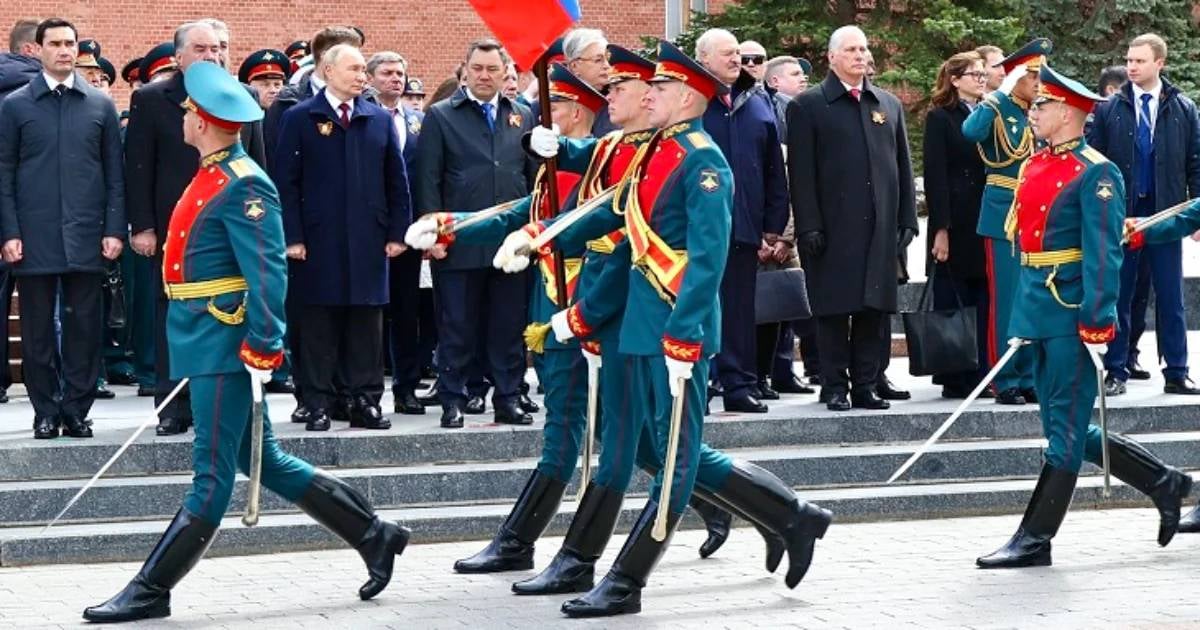Russian air defense forces successfully intercepted a large number of Ukrainian drones headed for Moscow, coinciding with a significant moment for the Kremlin as international leaders like Miguel Díaz-Canel, Xi Jinping, and Luiz Inácio Lula da Silva arrived to attend the 80th anniversary celebrations of the victory over Nazi Germany.
Moscow's Mayor, Sergei Sobyanin, announced on Telegram that at least 19 Ukrainian drones were shot down in recent hours as they attempted to reach the capital. The Russian Defense Ministry reported a total of 105 drones intercepted across various regions, marking one of the largest aerial attacks to date.
Minimal Damage but Heightened Security Concerns
Though no casualties or significant damage occurred, debris from several drones landed on vital infrastructure, including a major highway in Moscow. As a precautionary measure, four airports temporarily halted operations. Russian officials confirmed that emergency teams are actively working in the impacted areas, praising the successful actions of air defenses that prevented further repercussions just hours before the annual Red Square military parade scheduled for May 9.
Symbolic Arrival of Díaz-Canel in Moscow
The Cuban leader, Díaz-Canel, touched down in Moscow on Tuesday, greeted by Deputy Foreign Minister Sergey Ryabkov and a Russian state protocol official. This scene underscored the subordinate role Cuba's regime plays in its increasingly one-sided relationship with the Kremlin. Despite the Cuban state-run media Granma attempting to portray the visit with a sense of gravity, highlighting the 65th anniversary of diplomatic relations with Russia, the trip's international context invites intense scrutiny.
During Russia's ongoing war against Ukraine, an invasion condemned by most of the international community, Havana persists in strengthening ties with a regime accused of war crimes and facing increasing diplomatic isolation.
Strategic Meetings Amid International Isolation
The drone attack occurred during a period of significant international attention for Russia. This week, Moscow hosts several of Vladimir Putin's key allies as part of diplomatic efforts to counteract the isolation resulting from its actions in Ukraine. The Cuban leader's presence is especially emphasized by Cuban official media as a crucial part of the strategic alignment between Havana and Moscow, focusing on areas like defense, energy, and telecommunications. Security measures have been notably heightened during these visits.
Military and Symbolic Implications
Drone attacks targeting Moscow have been on the rise in recent weeks. While Ukraine often refrains from claiming responsibility for these operations, Russian authorities accuse Kyiv of attempting to disrupt military parade preparations and send a symbolic challenge to Russian power structures. With foreign leaders present and under international scrutiny, the Kremlin faces dual pressure to demonstrate military strength and maintain an appearance of internal stability amid the commemoration of one of its most sacred nationalist narratives.
Key Questions About Russian Drone Interception and International Implications
How many Ukrainian drones were intercepted near Moscow?
Russian air defenses intercepted a total of 105 Ukrainian drones, with at least 19 being shot down as they neared Moscow.
What was the reaction to Díaz-Canel's visit to Moscow?
Díaz-Canel's visit was symbolic, reflecting Cuba's subordinate role in its relationship with Russia, amid international criticism of Russia's actions in Ukraine.
What impact did the drone debris have on Moscow?
The drone debris did not cause casualties or major damage but did land on critical infrastructure, including a major highway.
Why is the Kremlin under pressure during the international visits?
The Kremlin faces pressure to showcase military strength and maintain stability while hosting international leaders during a significant national commemoration.
